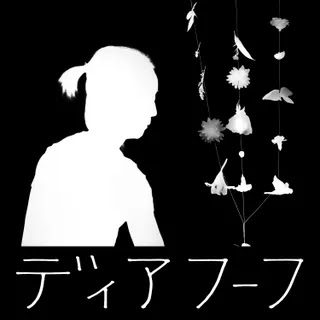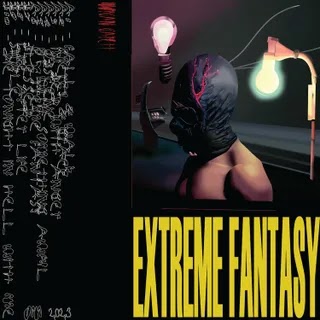In her debut theatrical work, the Philadelphia poet and experimental musician rails against the racist underpinnings of the housing crisis against a backdrop of free jazz.
Across three days in June 2019, Camae Ayewa, better known as Moor Mother, presented her first theatrical creation, Circuit City, at Philadelphia’s FringeArts. That Ayewa should stage such an ambitious multimedia work—part musical, part choreographed poem, part play—while also preparing Zonal’s Wrecked and her solo album Analog Fluids of Sonic Black Holes speaks to the Philadelphia poet and experimental musician’s work ethic. She has a good reason to be so prolific: Ayewa’s work is dedicated to the struggle against a system of oppression that spans generations. As she says early in the piece, “There’s been so much trauma, I don’t even know where to start…. I don’t even know what year/I got my momma’s years, my daddy’s years all mixed up inside of me.” Staring down “the cold way of life’s limitations,” her work is an acknowledgement that the fight against oppression must be as tireless as the inhumane systems that perpetuate such trauma.
Set in the living room of a corporate-owned housing complex, Circuit City may well be the first theater production ever to feature an essay written by an attorney from the Housing Unit of Philadelphia’s Community Legal Services. Like the production itself, the music addresses decades of neglect in low-income public housing, police brutality, redlining, and the fear of eviction—bleak topics that might not promise the most engaging listen. But such is Ayewa’s presence and steely delivery that the four extended pieces nevertheless lodge you inside the mind of someone who lives with such daily indignities. Paranoid, claustrophobic, yet determined to “circuit break,” the album forges ahead in a style similar to that of Who Sent You?, the smoldering free-jazz album she released last year as a part of Irreversible Entanglements. That band supports her here, providing a roiling backdrop of horns, drums, keys, and standup bass augmented by visceral electronics from Ada Adhiyatma and Steve Montenegro and backing vocals from Elon Battle.
On Who Sent You?, Ayewa’s voice fit neatly into Irreversible Entanglements’ pocket, glinting with wit and candor. She is more forceful and didactic here, pushing into the red when the music starts to boil. Amid the frenzy of frequencies and crashing cymbals on “Act 2 - Circuit Break,” Ayewa worries at the word “breaking” as Keir Neuringer’s alto and Aquiles Navarro’s trumpet shriek around her, sounding breathless, then frenetic. In the album’s cathartic final act of UFO bleeps and droning horns, she shouts, “You can’t time travel/Seek inner and outer dimensions/Without free jazz!” But while she blends visceral electronics with jazz, Moor Mother steadily moves beyond the confines of any one sound or discipline. The album might not be an ideal entry into her oeuvre, but it reveals Ayewa to be one of the most uncompromising artists in any field.
The most disarming voice on the album belongs to Elon Battle, who assumes the spotlight in “Act 3 - Time of No Time.” Against a backdrop of simmering electronics, echoing horns, and clattering percussion, Battle sings an alien torch song whose trembling falsetto brings to mind ANOHNI—a refreshing change of pace before Ayewa’s voice returns to the fold. As the tension builds, she reels off snatches of numbers and figures that feel disjointed at first (“20 million,” “70 thousand”) but build to a striking command: “Say my name/So my children will know where to find me/Once they take away our homes.”
When Circuit City ran last year, the accompanying notes referenced the 22,000 eviction filings recorded annually in Philadelphia, along with an unknown number of illegal evictions—a burden that primarily falls upon women of color. In the wake of the global pandemic, devastated city budgets, and widespread economic free fall, low-income housing is in even worse shape now. Even if COVID-19 were to vanish from the earth tomorrow, the urban housing crisis would remain unresolved. It will take a concerted, communal effort to even begin to clearly see, much less address, this issue that strikes at the very core of our humanity. Moor Mother’s Circuit City intently illuminates the threats facing poor people of color in their very homes. Putting avant-garde tactics to humanist ends, her album is a powerful indictment of a vicious, racist cycle that needs to be broken. As she reminds us at the album’s finale, “You can’t go to war without a drum.”
















0 comments:
Post a Comment